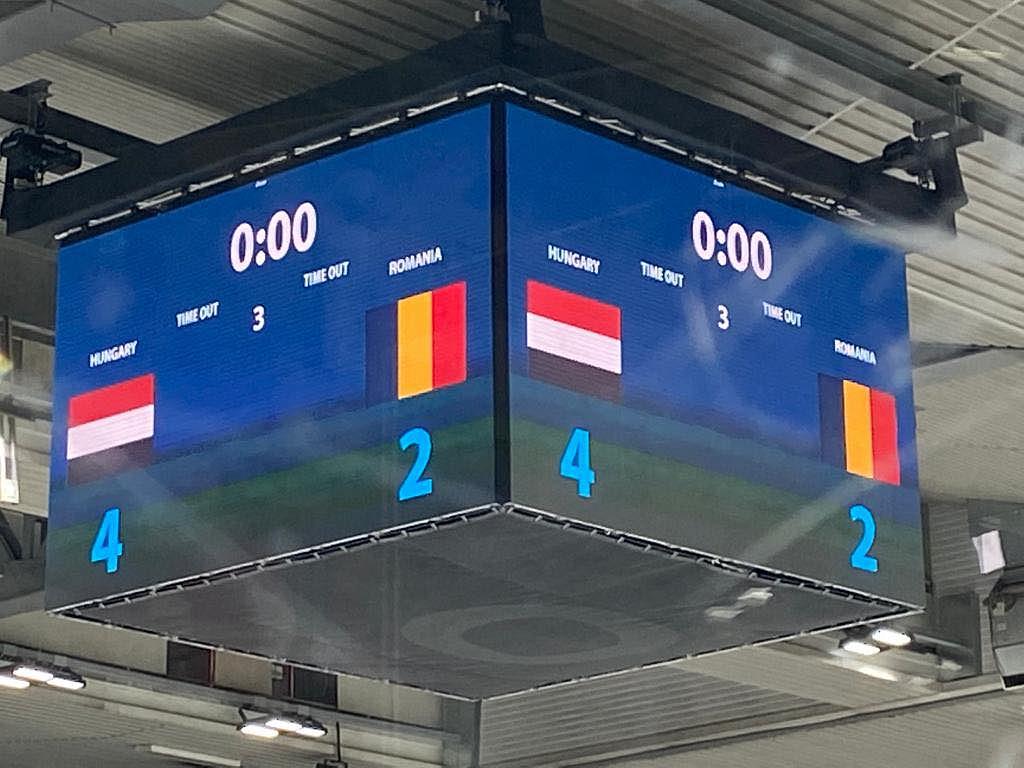Tensions in ruling coalition after Hungarians in Romania’s national hockey team sing Székely anthem



An incident that occurred after an international hockey match has generated outrage in the Romanian media and tensions in the governing coalition.
Last week, after the Romanian and Hungarian teams faced off in the 2022 IIHF Ice Hockey World Championship, ethnic Hungarians part of Romania’s national team sang the anthem of the predominantly Hungarian region of Székely Land, instead of Romania’s, causing an uproar at home.
Romania lost the game (2-4) held in Ljubljana – as it did all of the four games of the World Cup. Even before the game, Romania was to finish in last place in its group and be relegated, so there were no high stakes riding on its match with Hungary.
Strong ethnic ties bridged the two teams. Players from Miercurea Ciuc and Gheorgheni, cities predominantly inhabited by ethnic Hungarians, make up the bulk of Romania’s national hockey team. On the other side, three players from the Hungarian team - Nandor Fejes, Tamas Sarpatki, and Istvan Sofron – were born in Romania’s Harghita county.
After the game, most of the players from the Romanian team, along with the Hungarian players, sang the anthem of the Székely Land after that of the winner, Hungary. The Romanian media denounced their act as “revolting.”
“Something like this should not have happened,” said Alexandru Hălăucă, president of the Romanian Hockey Federation. “Players from the Székely Land area are attempting to destabilize the national team. We [the Federation] will have elections in August and they’ll try to get someone from that area [to win],” he added.
According to the regulations, the players in question risk being suspended for at least one year from the national team, but also from their club teams.
The scandal also had a strong political echo given that the ethnic Hungarians' party UDMR is part of the ruling coalition in Romania alongside the Social Democratic Party (PSD) and National Liberal Party (PNL).
“Those who don’t respect Romania have no business wearing the red, yellow and blue [the colors of Romania’s flag],” said transport minister Sorin Grindeanu (PSD). The Social Democrat also publicly asked his colleague, sports minister Eduard Novak (UDMR), to urgently address the issue.
Social Democrat leader Marcel Ciolacu also weighed in, promising that the issue would be discussed within the governing coalition and that, in the context of the ongoing war in Ukraine, such “provocations” are uncalled for.
Tanczos Barna, Romanian minister for the environment, was also present at the game. However, he was reportedly seated in the section designated for supporters of the Hungarian team.
Like Novak, Barna is an ethnic Hungarian. He became part of Romania’s cabinet with the support of the Democratic Alliance of Hungarians in Romania (UDMR), the party seeking to represent ethnic Hungarians in the country, which is also part of the governing coalition. Barna argues that he was there to support the players from Miercurea Ciuc and Romania and that he was seated along with other supporters of the Romanian team.
Tensions between Romanians and ethnic Hungarians are not new. Two years ago, Romania commemorated the three decades since the ethnic clashes in Targu Mures. In March 1990, months after the violent revolution of 1989, gangs of Romanians and Hungarians from the multiethnic Transylvanian town started fighting. Spirits had been flared up by the request from ethnic Hungarians to have their children educated in their mother tongue combined with widely-spread fake news that alleged that Romanians were being mistreated, which led to the headquarters of UDMR being attacked. The following street clashes left 5 dead and 278 injured. Eventually, the army pacified the city.
While the ethnic tensions have diminished over the last 30 years, they are still present in the political discourse.
Hungarians in Transylvania have received many concessions, including the right to use their language in schools and public administration in the counties where they form significant communities. At the same time, UDMR has been part of almost every ruling coalition in this period and Romanian politicians in Bucharest have often been accused of trading more rights for the minority in exchange for political support.
Still, the calls for the autonomy of Székely Land, backed by Viktor Orban’s regime in Budapest, continue to be a sore point in Romanian-Hungarian relations.
by Radu Dumitrescu, journalist
radu@romania-insider.com
(Photo source: FRHG Facebook page)